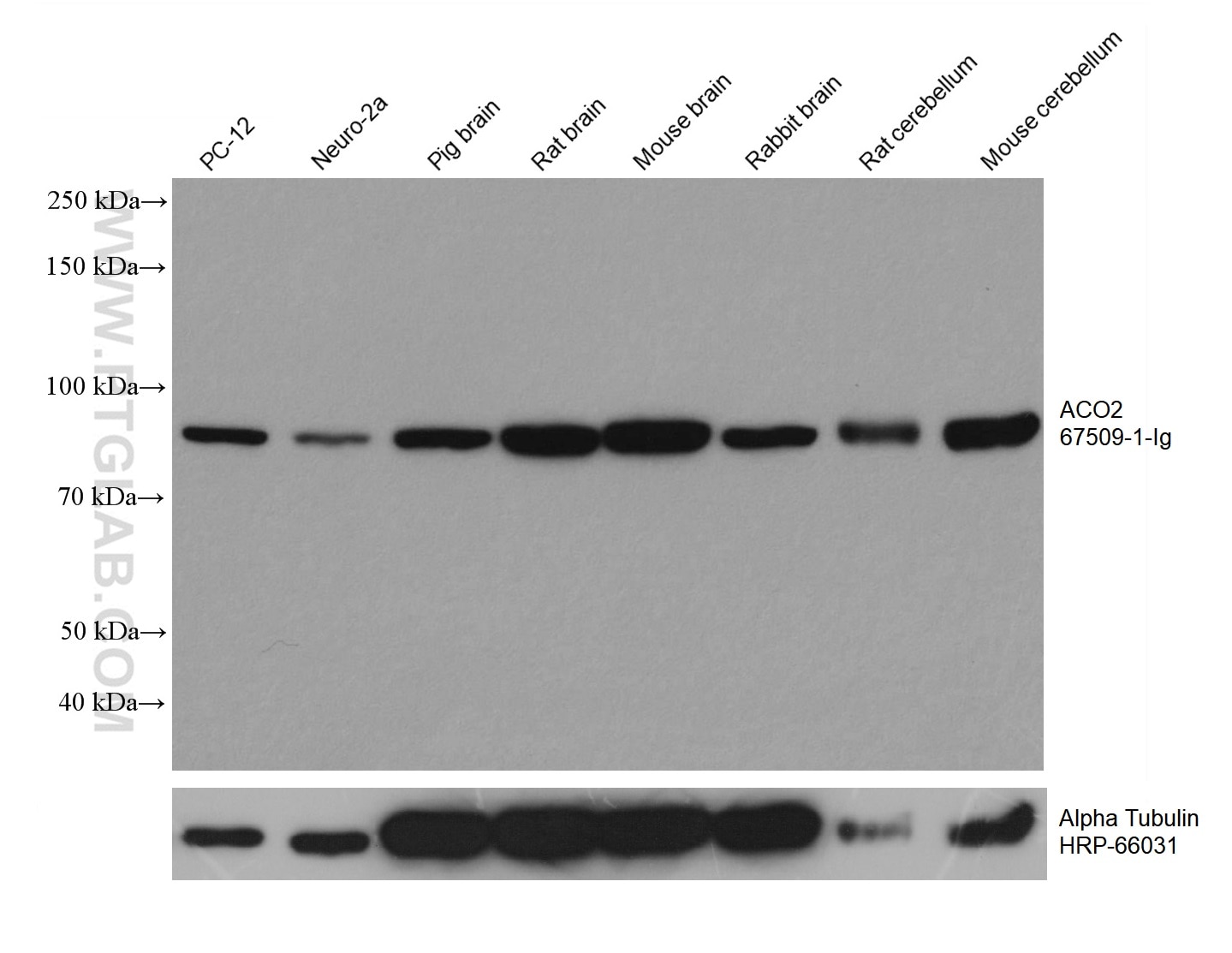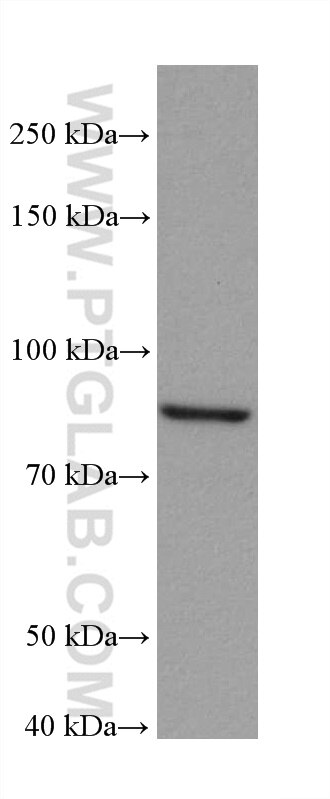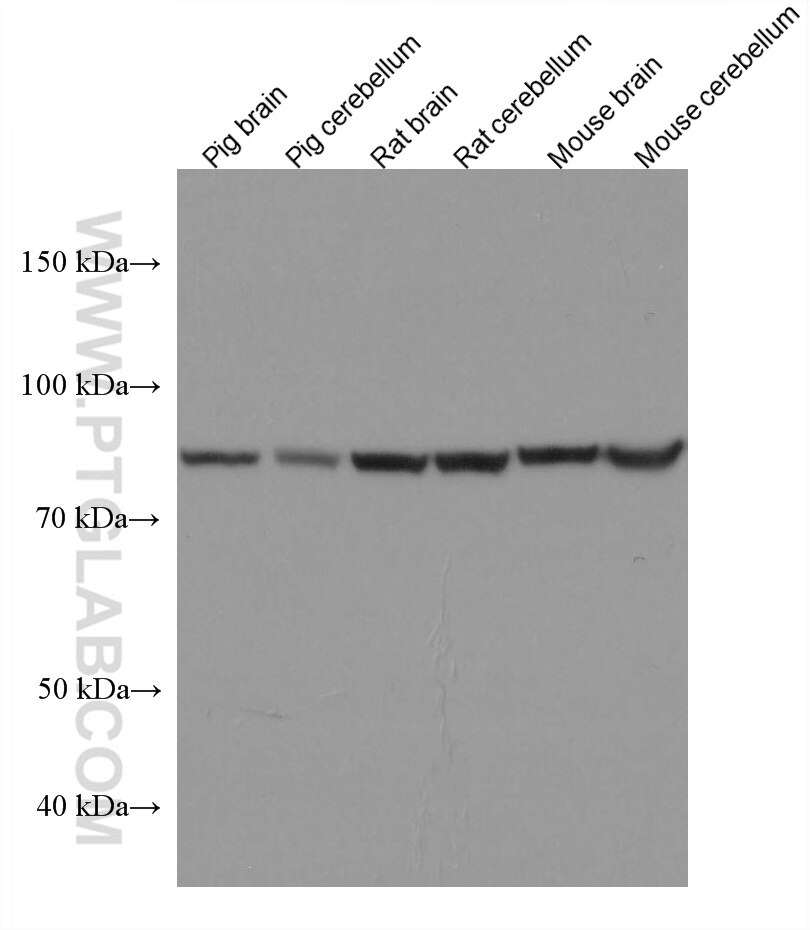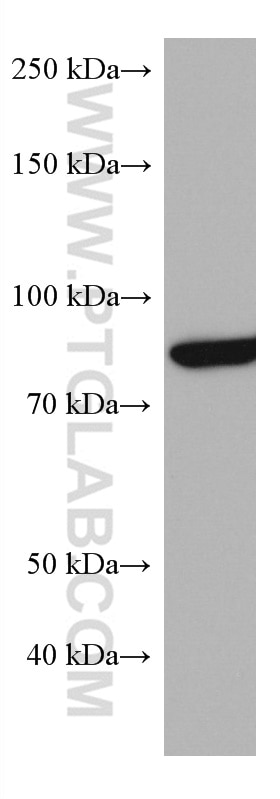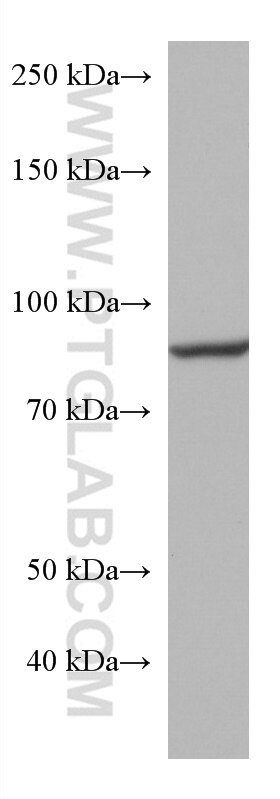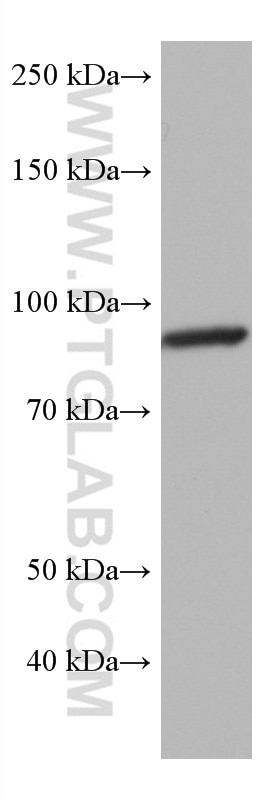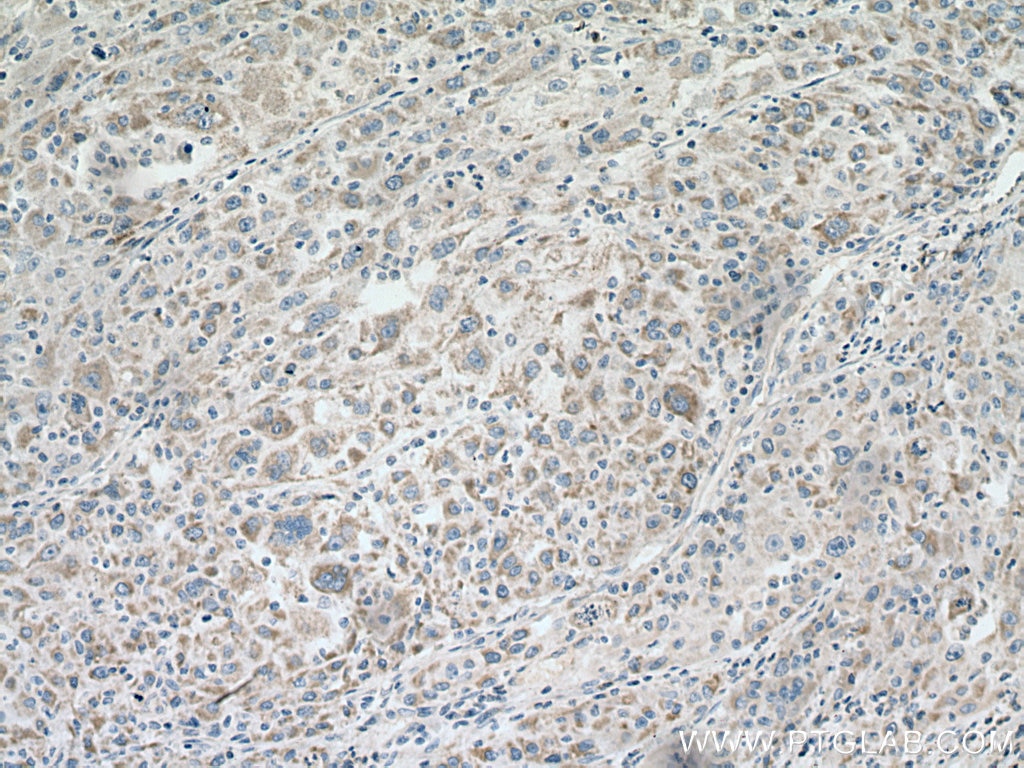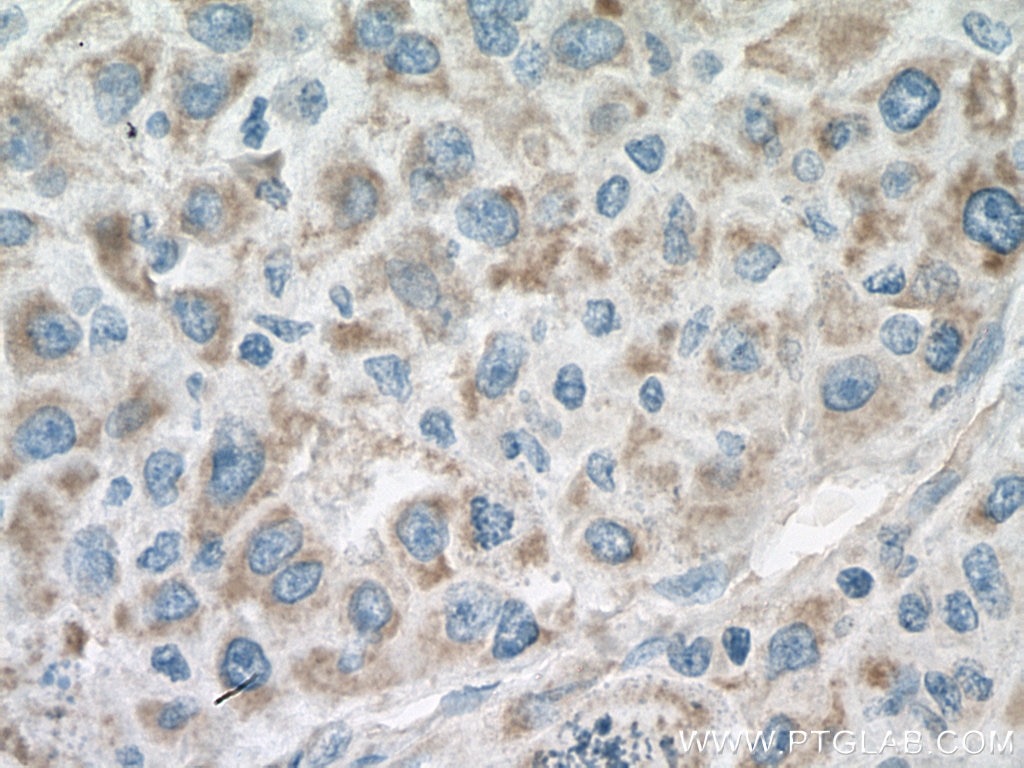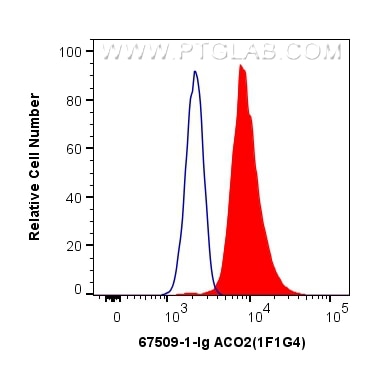Anticorps Monoclonal anti-Aconitase 2
Aconitase 2 Monoclonal Antibody for WB, IHC, FC (Intra), Indirect ELISA
Hôte / Isotype
Mouse / IgG1
Réactivité testée
Humain, porc, rat, souris
Applications
WB, IHC, FC (Intra), Indirect ELISA
Conjugaison
Non conjugué
CloneNo.
1F1G4
N° de cat : 67509-1-PBS
Synonymes
Galerie de données de validation
Informations sur le produit
67509-1-PBS cible Aconitase 2 dans les applications de WB, IHC, FC (Intra), Indirect ELISA et montre une réactivité avec des échantillons Humain, porc, rat, souris
| Réactivité | Humain, porc, rat, souris |
| Hôte / Isotype | Mouse / IgG1 |
| Clonalité | Monoclonal |
| Type | Anticorps |
| Immunogène | Aconitase 2 Protéine recombinante Ag17784 |
| Nom complet | aconitase 2, mitochondrial |
| Masse moléculaire calculée | 85 kDa |
| Poids moléculaire observé | 85 kDa |
| Numéro d’acquisition GenBank | BC014092 |
| Symbole du gène | ACO2 |
| Identification du gène (NCBI) | 50 |
| Conjugaison | Non conjugué |
| Forme | Liquide |
| Méthode de purification | Purification par protéine G |
| Tampon de stockage | PBS only |
| Conditions de stockage | Store at -80°C. 20ul contiennent 0,1% de BSA. |
Informations générales
ACO2(aconitate hydratase, mitochondrial) is also named as citrate hydro-lyase and belongs to the aconitase/IPM isomerase family. It plays a key function in cellular energy production, and loss of its activity has a major impact on cellular and organismal survival. Western blot shows two bands of 83 kDa and 40 kDa. The 40 kDa fragment decreases with age and oxidative stress, whereas other fragmentation products with molecular weights between 40 and 83 kDa increased with age and MnSOD(mitochondrial manganese superoxide dismutase) deficiency(PMID:12459471). Defects in ACO2 are the cause of infantile cerebellar-retinal degeneration (ICRD).
